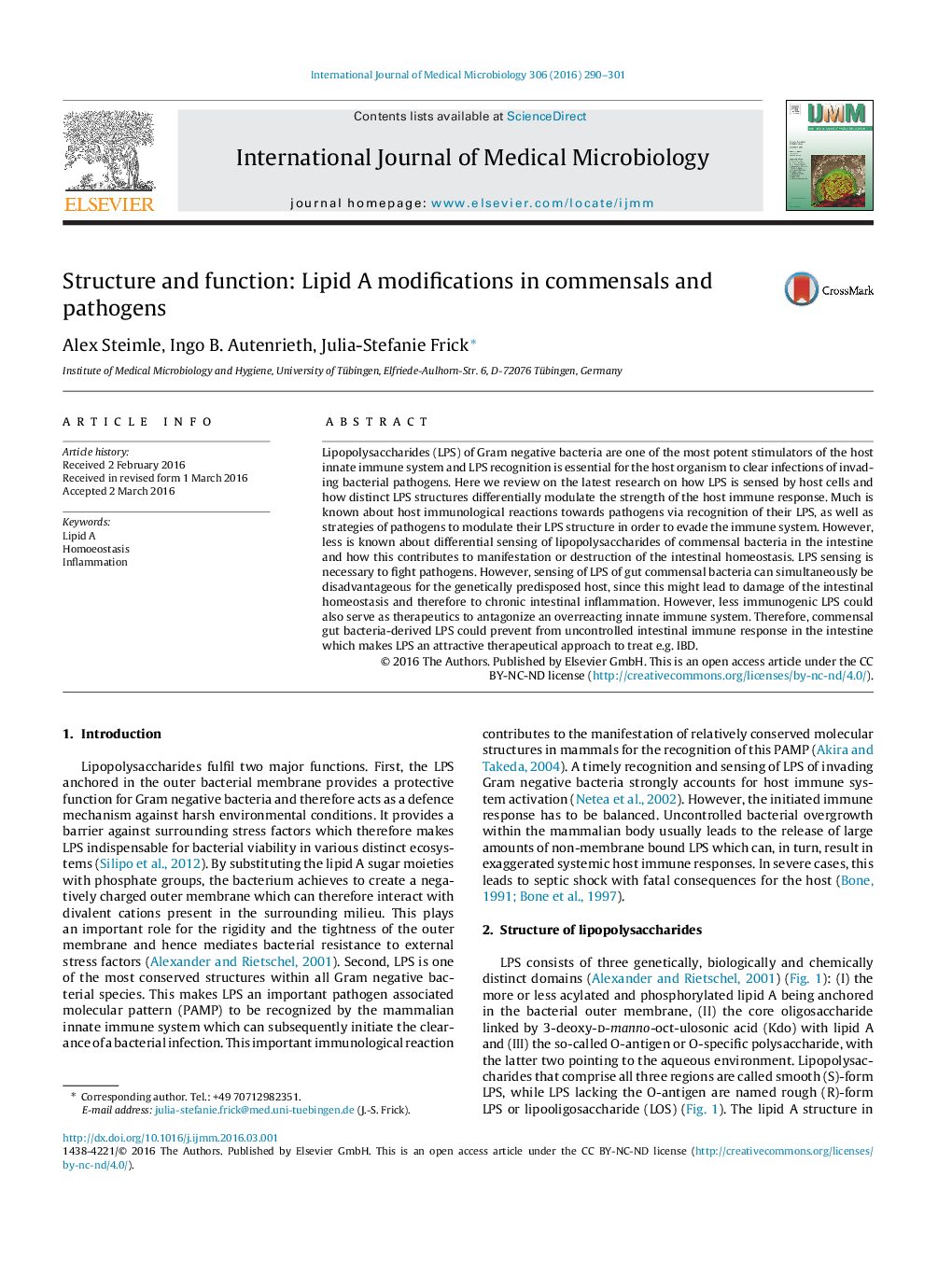| Article ID | Journal | Published Year | Pages | File Type |
|---|---|---|---|---|
| 5517827 | International Journal of Medical Microbiology | 2016 | 12 Pages |
Lipopolysaccharides (LPS) of Gram negative bacteria are one of the most potent stimulators of the host innate immune system and LPS recognition is essential for the host organism to clear infections of invading bacterial pathogens. Here we review on the latest research on how LPS is sensed by host cells and how distinct LPS structures differentially modulate the strength of the host immune response. Much is known about host immunological reactions towards pathogens via recognition of their LPS, as well as strategies of pathogens to modulate their LPS structure in order to evade the immune system. However, less is known about differential sensing of lipopolysaccharides of commensal bacteria in the intestine and how this contributes to manifestation or destruction of the intestinal homeostasis. LPS sensing is necessary to fight pathogens. However, sensing of LPS of gut commensal bacteria can simultaneously be disadvantageous for the genetically predisposed host, since this might lead to damage of the intestinal homeostasis and therefore to chronic intestinal inflammation. However, less immunogenic LPS could also serve as therapeutics to antagonize an overreacting innate immune system. Therefore, commensal gut bacteria-derived LPS could prevent from uncontrolled intestinal immune response in the intestine which makes LPS an attractive therapeutical approach to treat e.g. IBD.
